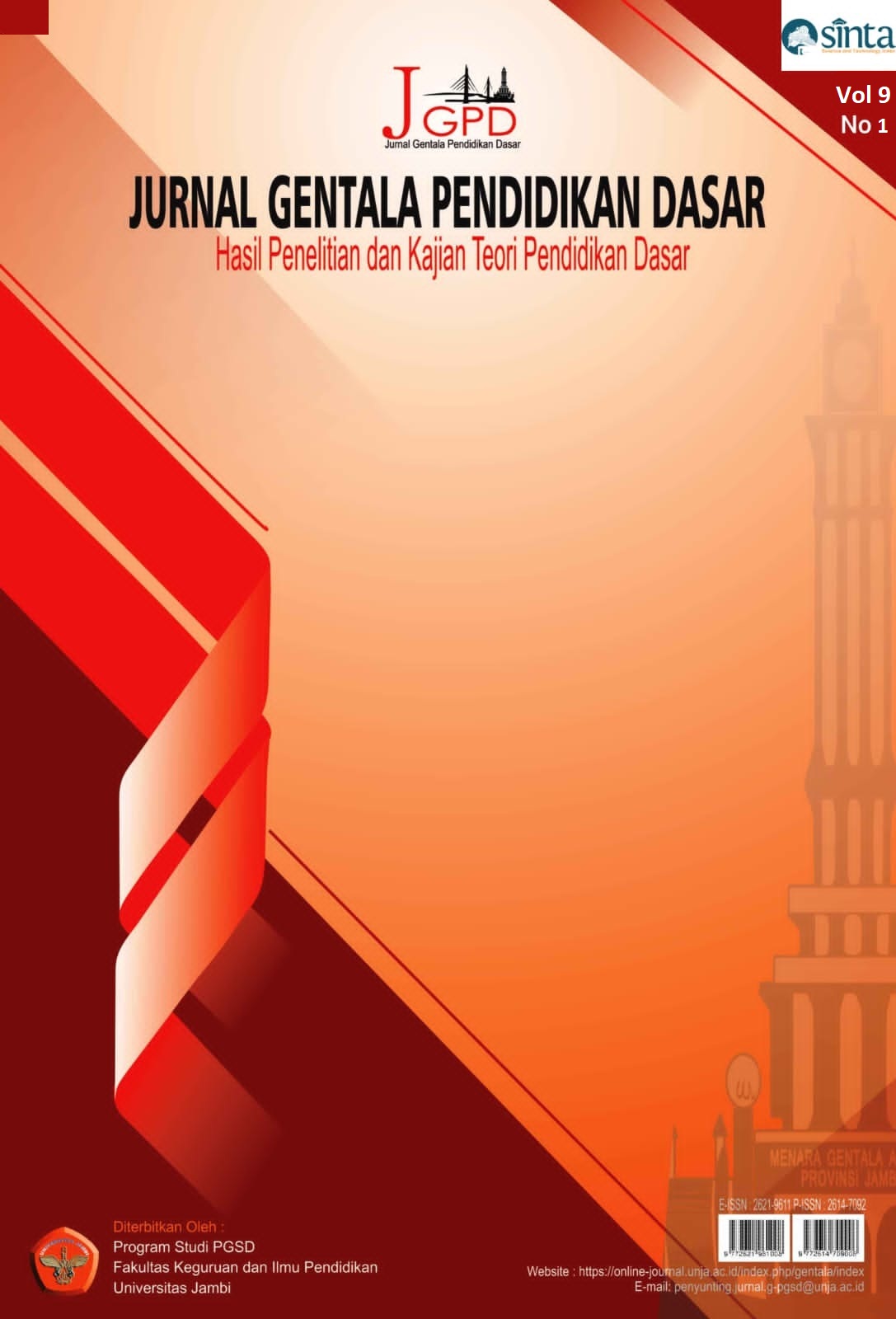The Impact of Globalization on Social Development and Culture of Primary School Students
DOI:
https://doi.org/10.22437/gentala.v9i1.34822Keywords:
Globalization, Socio-cultural development, Elementary schoolAbstract
ABSTRAK
This research examines the impact of globalization on the social and
cultural development of students at UPT SPF SDN 101990 Bangun
Purba. This research uses a qualitative approach with in-depth
interview methods, participant observation, and documentation
analysis. This research aims to describe the impact of globalization,
identify cultural changes, analyze student adaptation, and provide
recommendations for educators and policy makers. The research
results show that globalization has had a positive impact in the form of
increasing access to knowledge through technology, developing social
skills, cultural enrichment, and increasing environmental and social
awareness. Students demonstrate better communication skills,
participation in collaborative activities, and a tolerant attitude towards
cultural diversity. This research supports constructivism theory and
intercultural contact theory, provides important insights for managing
the influence of globalization in elementary schools, and becomes a
reference for educational strategies that are responsive to
globalization
Downloads
References
Allport, G. W. (1954). The Nature of Prejudice. Addison-Wesley.
Amri, K., Rahman, A., Pane, A. R., Yus, A., & Setiawan, D. (2024). ANALISIS GAYA KEPEMIMPINAN KEPALA SEKOLAH DALAM MENGIMPLEMENTASIKAN DISIPLIN POSITIF DI SEKOLAH DASAR. Pendas: Jurnal Ilmiah Pendidikan Dasar, 9(2), 826-835.
Bandura, A. (1977). Social Learning Theory. Prentice-Hall.
Beck, U. (2010). World at Risk. Polity Press.
Braun, V., & Clarke, V. (2006). Using thematic analysis in psychology. Qualitative Research in Psychology, 3(2), 77-101.
Creswell, J. W. (2014). Research Design: Qualitative, Quantitative, and Mixed Methods Approaches (4th ed.).
Giddens, A. (2000). Runaway World: How Globalisation is Reshaping Our Lives. Profile Books.
Haryanto, I. (2015). Dampak Globalisasi terhadap Perilaku Sosial Anak di Era Digital. Jurnal Pendidikan dan Kebudayaan, 21(3), 256-270.
Hofstede, G. (2010). Cultures and Organizations: Software of the Mind. McGraw-Hill.
Johnson, D. W., & Johnson, R. T. (1994). Learning Together and Alone: Cooperative, Competitive, and Individualistic Learning. Allyn and Bacon.
McGraw-Hill.Rizvi, F. (2009). Globalization and the Dilemmas of Education. Educational Theory, 59(4), 403-417.
Piaget, J. (1970). The Science of Education and the Psychology of the Child. Viking Press.
Putnam, R. D. (2000). Bowling Alone: The Collapse and Revival of American Community. Simon & Schuster.
Rizvi, F. (2009). Globalization and the Dilemmas of Education. Educational Theory, 59(4), 403-417. SAGE Publications.
Erikson, E. H. (1968). Identity: Youth and Crisis. W. W. Norton & Company.
Yin, R. K. (2018). Case Study Research and Applications: Design and Methods (6th ed.). SAGE Publications.
Downloads
Published
How to Cite
Issue
Section
License
Copyright (c) 2024 Khairul amri, Sugiharto Sugiharto, Aina Ristanti Pane, Maharani Ritonga

This work is licensed under a Creative Commons Attribution-NonCommercial-ShareAlike 4.0 International License.













